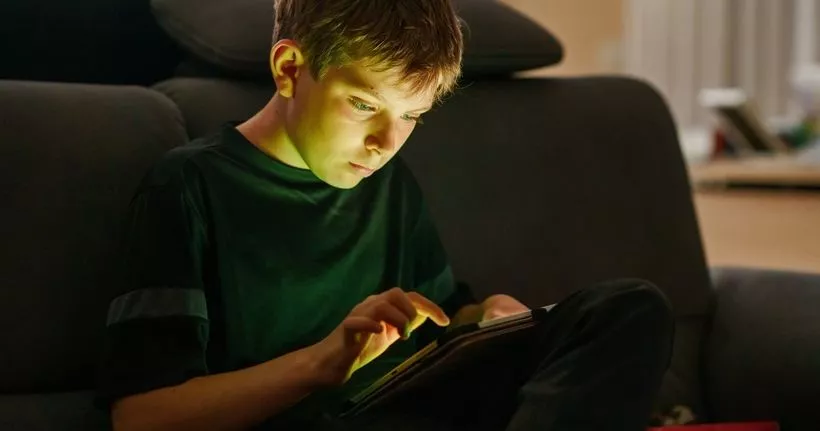Screen time facts & advice
Help children balance their screen time and adopt a healthy digital diet. Choose a guide below to help children get the most out of their devices.
 Close video
Close video
What’s inside the hub
Explore the hub to find expert screen time tips and guidance.

What is screen time?
Find out the benefits and potential risks screen time can present.

Get the most out of screen time
Help children make the most out of their time on devices with these tips.

Tackle “too much” screen time
Learn tips and tricks to help you handle screen time with your child.

Screen time resources
See a list of organisations that can support you and your child.

Creating a balanced digital diet
Tips to help children manage their screen and create a good digital diet.
Support children with digital stories
Our Digital Matters online platform allows you to teach children about online issues using digital stories. See our Once Upon Online story based around balancing screen time to support them.
Recommended resources
Featured screen time articles
 News & blogs
News & blogs
What is ‘doomscrolling’? Online safety guidance for parents
Doomscrolling is when a person gets caught in a continuous cycle of reading negative news online.
 Research
Research
Digital Dilemmas smartphone research 2024
With recent debates about the role of smartphones and social media in young people’s lives, this new research seeks to include parents' views and voices in the conversation.
 Research
Research
Internet Matters’ response to Government Pornography Review
Lizzie Reeves from Internet Matters responds call for evidence for the Government Pornography Review.
 Research
Research
Internet Matters’ response to Ofcom’s consultation on age assurance guidance
Lizzie Reeves from Internet Matters responds to the Ofcom consultation on draft guidance on age assurance and other Part 5 duties.
 Research
Research
Internet Matters’ response to Ofcom’s approach to protecting users from illegal harms online
Lizzie Reeves from Internet Matters responds to Ofcom's consultation into protecting people from illegal harms online.
